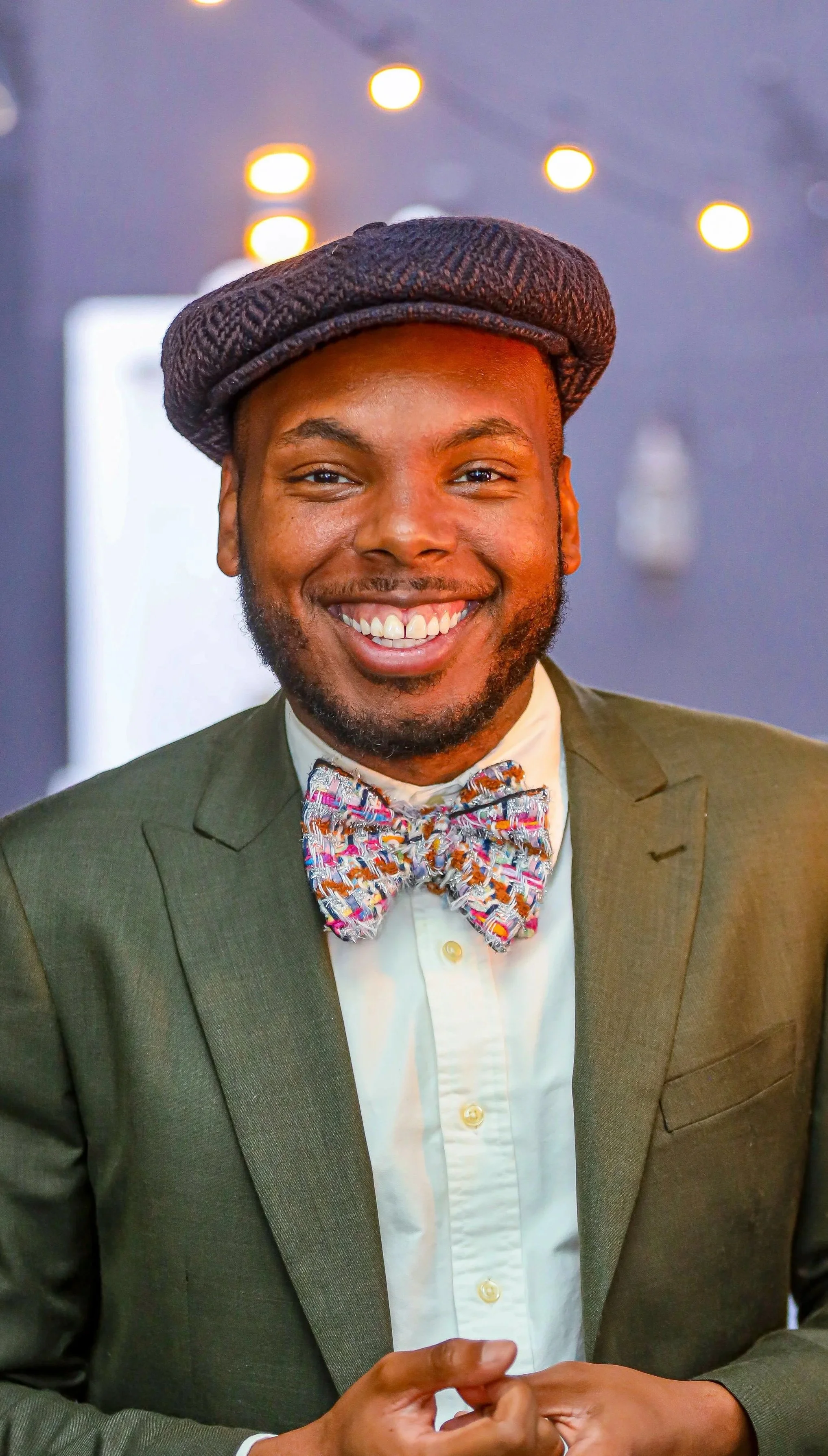MATHEW B. HOLLOWAY II
Founder & Princpal
Mathew B. Holloway II is a Resiliency Expert, Guide, and Writer dedicated to advancing collective well-being and social transformation. He teaches at the University of California, San Diego, and leads Conversations by Courage, a consulting practice that helps individuals, professionals, and organizations transform crisis and conflict into positive change.
With over a decade of experience across rural, urban, and international sectors, Mathew is a former Fulbright Scholar, an alum of the Obama Foundation’s Community Leadership Corps, and a graduate of the Joan B. Kroc School of Peace Studies at the University of San Diego, where he earned an M.S. in Conflict Resolution. His graduate work focused on developing contemplative, restorative approaches—drawing from Black healing traditions—to help individuals and communities build resilience, navigate uncertainty, and support collective healing in a post-COVID world marked by transition and upheaval.
In addition to his graduate studies, Mathew holds a Certificate in Trauma Awareness, Resiliency, and Restorative Approaches and a Certificate in Restorative Justice Facilitation and Leadership from the University of San Diego’s Center for Restorative Justice. He also earned a Graduate Certificate in Instructional Design from the University of Illinois Urbana-Champaign and a B.A. in Sociology from Loyola University New Orleans.
He currently serves as Vice President of the San Diego Fulbright Association Chapter and sits on the boards of the San Diego Diplomacy Council and the Black Men’s Flowers Project. His writing has been featured in the San Diego Union-Tribune as part of its Community Voices Project.
OUR FOUNDING STORY
Conversations by Courage began in the crucible of 2020. That summer, as the world collectively faced the convergence of a global pandemic, the public reckoning with police violence, and a deeply polarizing presidential election, I found myself in collapse—emotionally, spiritually, and physically. While society spiraled in crisis, I too unraveled. But in that unraveling, I found the thread that would lead me toward something deeper: healing.
During that time, while caregiving for my mother and working from home, I was forced into stillness. And in that stillness, I realized how much pain I had absorbed—both personally and collectively. The disconnection I carried in my body manifested as physical tension, shallow breathing, and exhaustion. I was constantly overcompensating—trying harder, doing more—while feeling less and less like myself. Romantic and platonic relationships faltered. Not because I didn’t care, but because I didn’t yet know how to center care. I had no framework for emotional regulation, no language for relational agreements, no rhythm other than the societal pace of grind and performance. And when it came to meaning, I had confused career with calling. I chased accolades and titles, not alignment. I earned degrees but lost touch with my own voice.
This moment marked the beginning of a new chapter—a journey into wellness, healing, and deeper meaning. I entered graduate school to study the emotional and social impacts of crisis, and to develop practices that could help us repair ourselves and each other. I came to understand that much of the conflict, violence, and division we witness—both personally and societally—is rooted in social pain. That pain often stems from unmet or neglected needs. When those needs are not acknowledged or held with care, they become grief. And when grief is left unprocessed, it calcifies into grievance. Grievances, when left unattended, often manifest as conflict, rage, and separation. So the hard work—the courageous work—is learning how to deal with pain. How do we respond to grief with care instead of punishment? How do we hold each other and ourselves through sorrow without needing someone to blame? That is the heart of healing. That is the essence of my work.
Through Conversations by Courage, I create spaces to help others navigate personal and collective crises, not by bypassing pain but by moving through it—by transforming grievance into grief, conflict into care, and disconnection into dignity.I do this work not as someone who has all the answers, but as someone who’s been through the fire and chose to heal. I offer what I’ve learned: that true well-being arises from meaningful relationships, emotional depth, and the courage to be our whole selves.Join us!
Mathew Holloway
Founder

